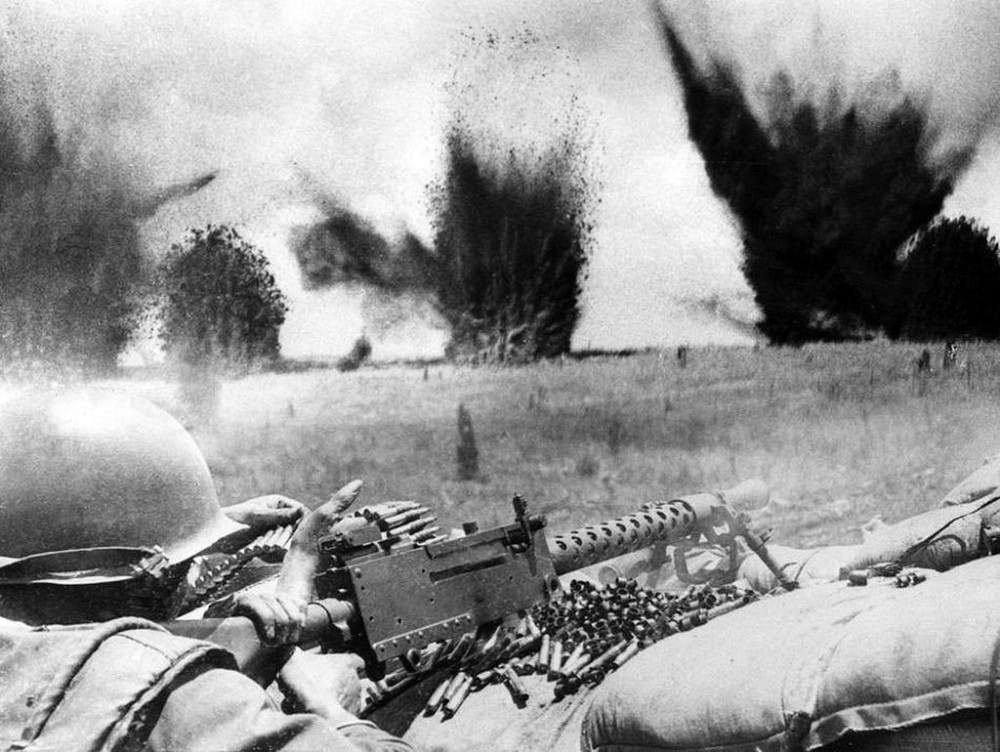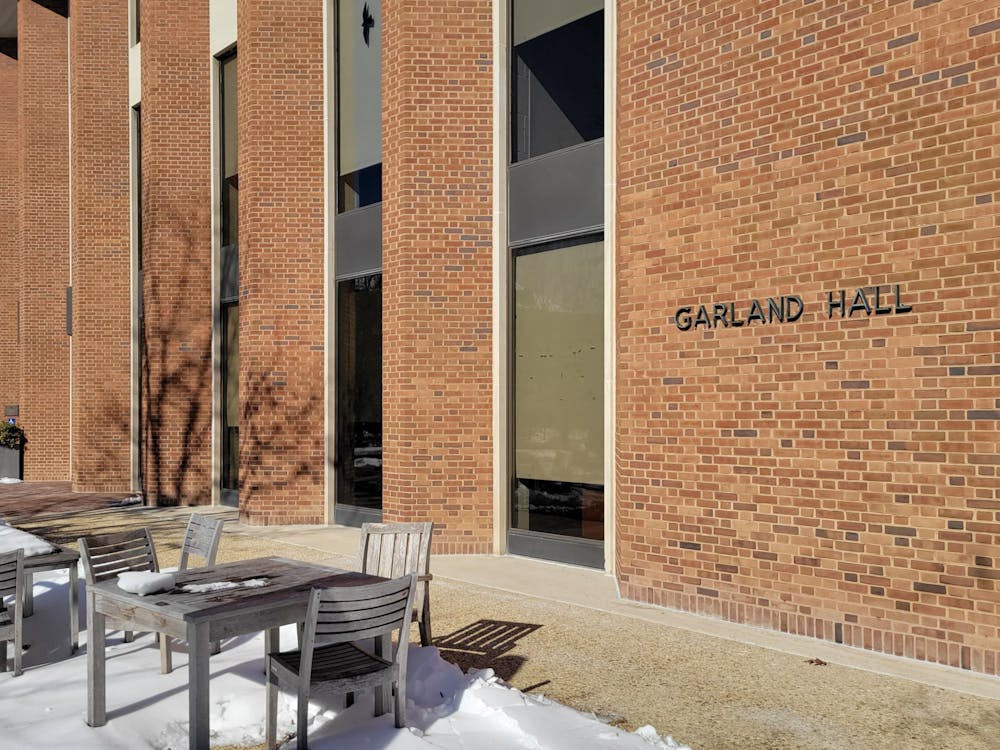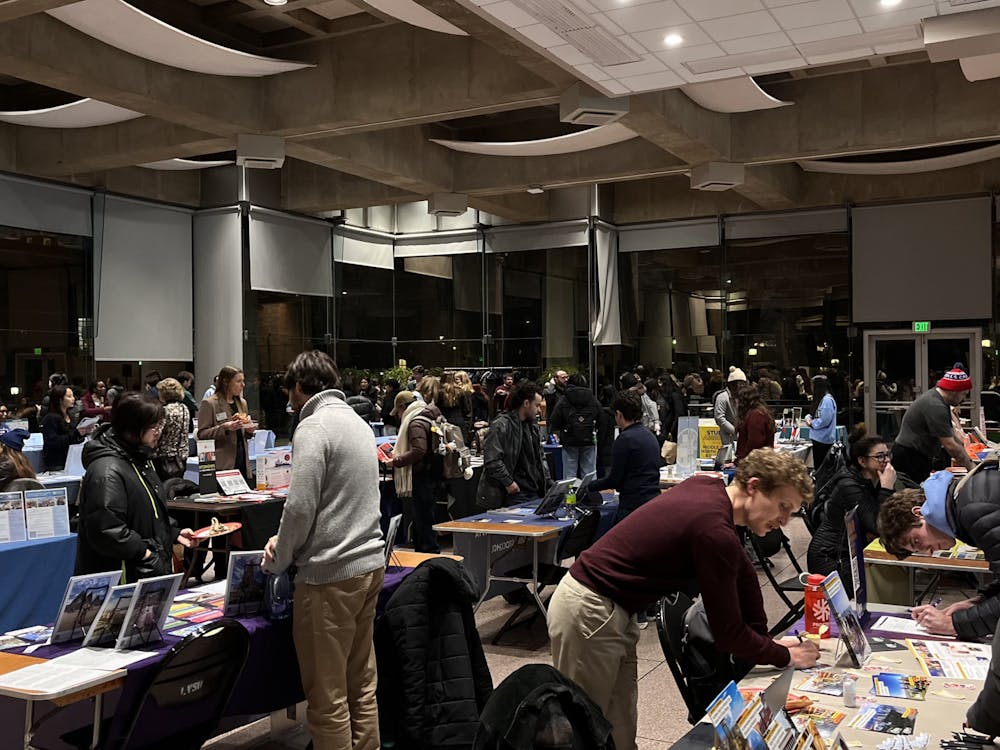Evyn Lê Espiritu, a graduate student of the University of California Berkeley, led a discussion on Monday about the commonalities between the anti-imperialist movements in Palestine and Vietnam during the 1960s.
The talk, which was organized by Students for Justice in Palestine (SJP), was titled “Uncovering the Historical Solidarity between Vietnam and Palestine.”
Espiritu discussed the parallels between the Palestinian movement against Israeli occupation and the North Vietnamese opposition to U.S. forces during the Vietnam War. She believes that there should be increased comparative historical scholarship between the two resistance campaigns. Espiritu questioned whether the U.S. commitment to Israeli will continue when Donald Trump swears in as president.
During the campaign, Trump suggested an isolationist policy of reversing trade deals and cutting off ties to NATO. However, statements by Jason Greenblatt, Trump’s advisor on Israel, have energized the political right in Israel with his pro-settlement statements.
Trump may also move the U.S. Embassy from Tel-Aviv to Jerusalem, something that three Presidents have declined to do since the Jerusalem Embassy Act of 1995 passed through Congress.
“In some ways, I was wondering if Trump’s isolationist policy would lead to less foreign intervention. He has mentioned, for example, that he wants to decrease funding for US bases abroad. That could have the unintended side effect of decreasing US imperialism in other countries,” Espiritu said. “On the other hand, there are all these military people who voted for Trump over Hillary, so I don’t know how this will all play out.”
During the Vietnam protests, some protesters drew connections between the Israeli-Palestinian conflict and the Vietnam War.
Espiritu noted that the Six-Day War of 1967 nearly coincided with the Tet Offensive in 1968, yet the U.S. government downplayed the anti-imperialist sentiment that grew in response to Western military actions by denying similarities between the two events.
“This decoupling is due in part to the historical moment,” she said. “In public speeches during this period, U.S. government officials de-linked the two spaces, hoping to suppress parallel critiques of U.S. intervention in Southeast Asia and the Middle East and to discredit transnational expressions of solidarity between the two regions.”
Palestinian fighters and activists drew inspiration from the communist Viet Cong forces that were allied with the North Vietnamese army. General Võ Nguyên Giáp of the North Vietnamese army claimed that “the Vietnamese and Palestinian people have much in common, just like two people suffering the same illness.”
The two groups at times shared similar political rhetoric and means of resistance.
Palestinian fighters referred to their conflict as a Second Vietnam or “Arab Hanoi.”
“Caught in their own struggle against imperial aggression, Palestinian fedayeen — or freedom fighters — identified with Vietnamese liberationists and thus included declarations condemning U.S. imperialism in Vietnam in their public speeches and political platforms,” she said.
When speaking with older Palestinians, Espiritu said they praised the North Vietnamese for winning the war.
Espiritu’s mother came to the U.S. as a refugee from the conflict in 1975 and the Vietnamese diaspora interested her as a graduate student.
Senior Sang Tran, president of the Vietnamese Students Association (VSA), says that Espiritu’s perspective made him think about the Vietnam War differently. While some Vietnamese people opposed North Vietnamese rule, Tran now thinks a unified Vietnam was a positive result.
“For me coming from a Vietnamese background, I came from a biased standpoint that we were rooting for imperialism,” Tran said. “Hearing from her perspective that the North was fighting against American imperialism for reunification, I’m glad that the North Vietnamese won to reunify the country. But it’s good to hear from both sides of the argument.”
Baltimore resident Kristina Hallez works with SJP. She thought the talk made an interesting connection between the movements in Vietnam and Palestine and that it was a fresh historical take on the matter.
“I think what’s interesting about these kinds of talks is you can always find a new connection with places you have always thought of in isolation before,” she said. “I’ve never explicitly thought about the Vietnam war and the oppression working in those sorts of places.”





